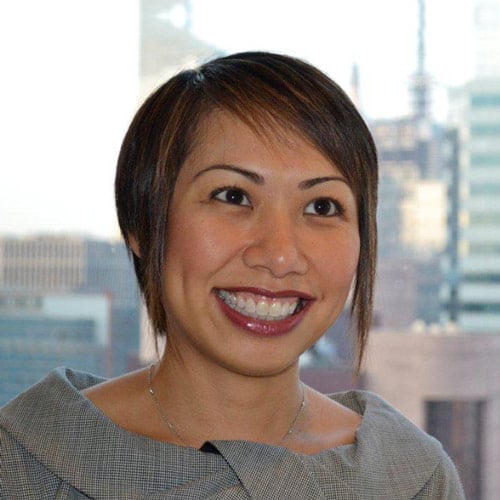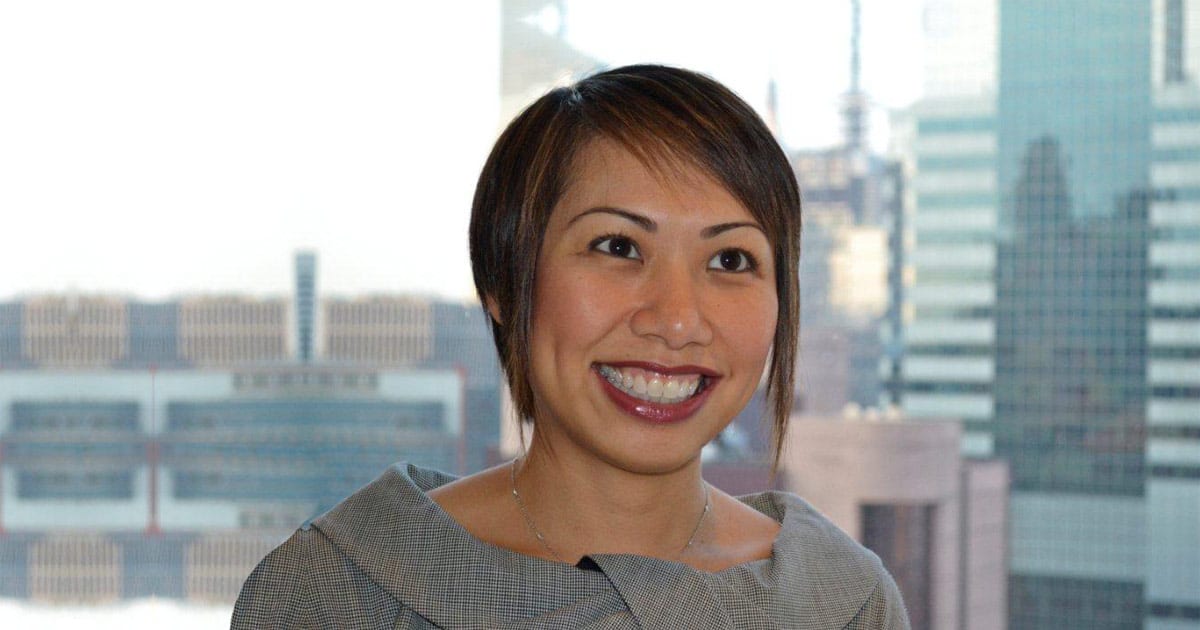How to Be Authentic and Bring Your Whole Self to the Workplace

A Q&A with Deloitte’s Alice Kwan

Alice Kwan is the Lead Consulting Partner for a Fortune 100 Financial Services company. She is also a member of the Deloitte Consulting Board and leads Client Excellence for Deloitte’s Financial Services industry. Passionate about promoting equity and inclusion, her hobbies consist of what keeps her soon to be 11 year old son entertained. Currently, it is being a master builder of Legos.
Q: What does authenticity in the workplace mean for you?
Authenticity in the workplace means you can show up as your whole self at work and not have to pretend to be someone else or put on another persona to be successful.
In the ’80s, when I first started working in the professional world, women had to wear skirt suits with pantyhose and closed-toe shoes. The weird thing is, you couldn’t show your feminine side and had to act very “type A” to get ahead. There’s still a lot of work to be done, but thank goodness we have come a long way from that.
Now the lines between work and life are so blurred, especially this year with the pandemic. Working from home has given everyone an up-close look into each other’s lives. Being authentic has meant being able to show up on a call with your dog and your kid in the background and not having to hide things about your personal life to fit a certain mold.
Authenticity at work also means having a real talk with those around you versus giving the politically correct answer that won’t upset someone. When people don’t have the courage to have real talk and aren’t willing to be vulnerable and transparent, it doesn’t allow for others to learn from those that have already taken certain roads or made certain mistakes. I think it’s a leader’s responsibility to lead authentically.
Q: Has “bringing your whole self to work” been a challenge for you? If someone were struggling with that, what advice would you give them (or their organization)?
I’ve always brought my whole self to work. There are times when I felt like I was penalized for it—less so now than when I was younger in my career. I’ve been open about my life and experiences, who I am as a person, what’s important to me, how I choose to show up, and how I choose to look. Depending on who my leader was at the time, the leader either embraced that or didn’t. For those that didn’t, I think they weren’t comfortable with someone who was different. I had to figure out how to navigate that.
There was one leader who made assumptions about who I was, and, frankly, I did the same with him. I thought he didn’t understand or care about women’s issues. Things were very awkward until I asked him to lunch one day, and we really got to know each other. We had a breakthrough moment. Even though we were very different, I realized he had a lot of great qualities, and there were things I could learn from him. I still consider him to be one of my best mentors.
This last year and a half have made the value of authenticity very real for me with everything that has been happening publicly with social justice, given the BLM movement, as well as the rise in anti-Asian sentiment. I have a multicultural, multiracial family; I am raising a black son; I am a first-generation Chinese American. I found that being public and vocal with my life and my struggles have let others in my organization know they were not alone. It gave air to conversations that needed to be had. I’m grateful that I’ve been able to raise awareness about the issues that affect so many.
The advice I would give someone struggling with authenticity would be three things.
- Number one is just doing it—meaning bring your whole self—and don’t pretend to be someone you’re not. At the end of the day, that isn’t sustainable, and you’ll be miserable.
- The second is to keep an open mind. Like the example I gave earlier, if you’re willing to be vulnerable and put things out on the table, people might surprise you. In the end, people have more in common than they realize.
- Number three: Be brave and share your story. Chances are there are many others with a similar story they would like to share. They’re just waiting for someone else to do it first.You are not alone.
Q: Do you have a professional role model? What have you learned from her leadership?
I have many role models.There are so many things I learn from so many different people. One of my greatest role models is someone who had been a sponsor of mine for decades.He always had time for me, no matter how silly I might have thought the issue was that I was struggling with. He was my largest proponent publicly and my hardest critic privately. He always pushed me to grow and get beyond my comfort zone. He always had my back. I try to pay all of it forward and often think of him when I’m working with my teams and mentoring and sponsoring others.